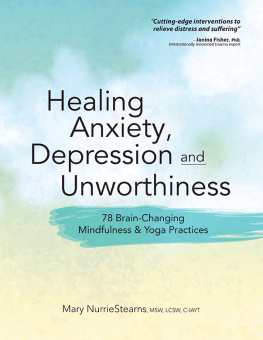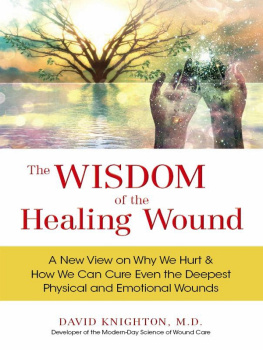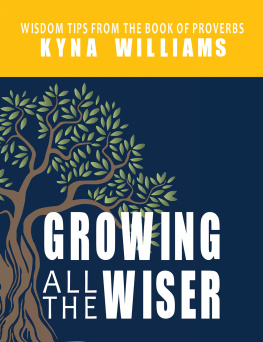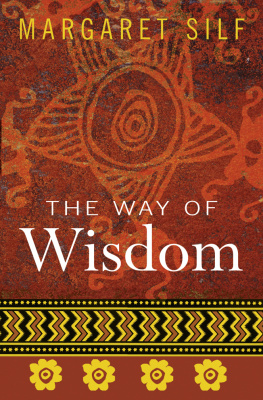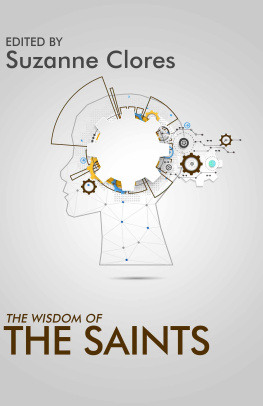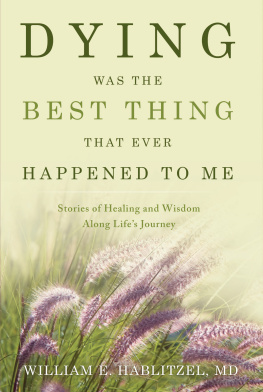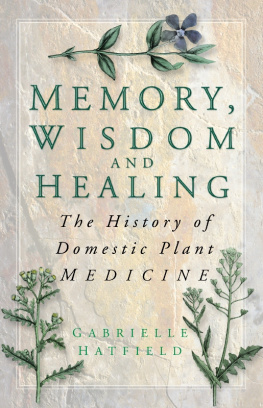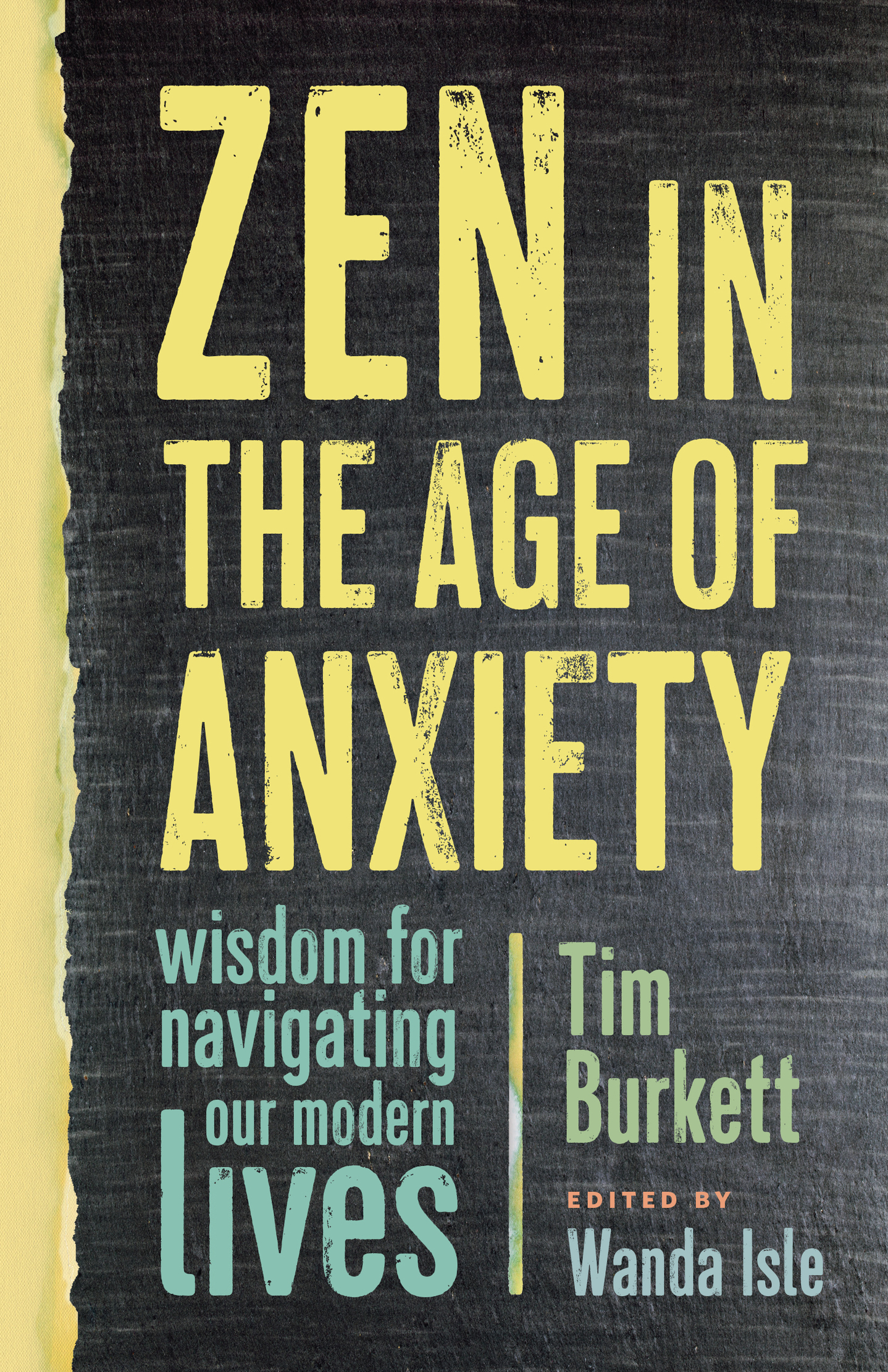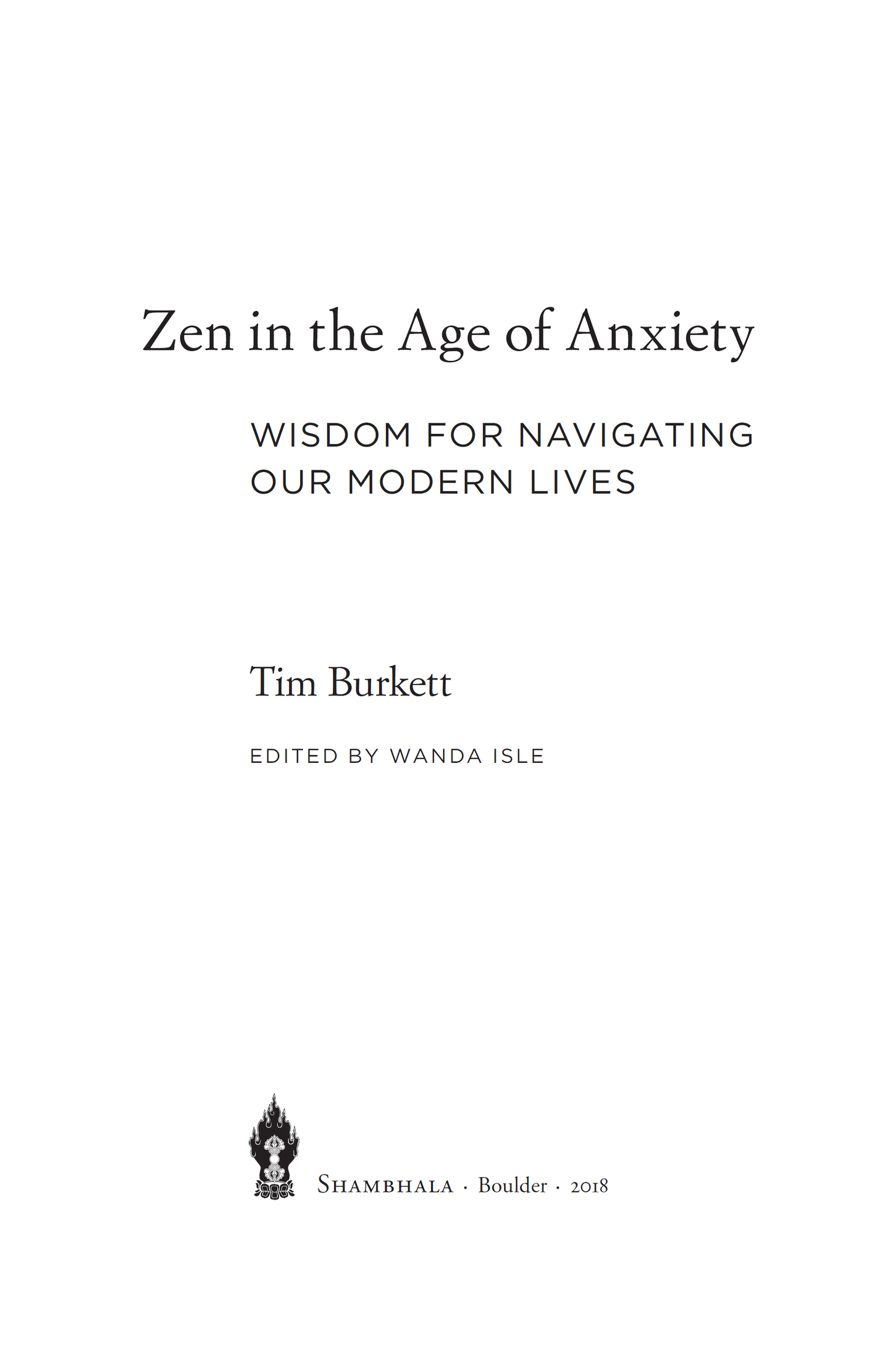Contents
ALSO BY TIM BURKETT
Nothing Holy about It:
The Zen of Being Just Who You Are
Shambhala Publications, Inc.
4720 Walnut Street
Boulder, Colorado 80301
www.shambhala.com
2018 by Tim Burkett and Wanda Isle
Page 159 constitutes a continuation of this copyright page.
All rights reserved. No part of this book may be reproduced in any form or by any means, electronic or mechanical, including photocopying, recording, or by any information storage and retrieval system, without permission in writing from the publisher.
Cover art & design by Gopa & Ted2, Inc
Library of Congress Cataloging-in-Publication Data
Names: Burkett, Tim, author. | Isle, Wanda, editor.
Title: Zen in the age of anxiety: wisdom for navigating our modern lives / Tim Burkett; edited by Wanda Isle.
Description: First Edition. | Boulder: Shambhala, 2018. | Includes index.
Identifiers: LCCN 2017040620 | ISBN 9781611804867 (pbk.: alk. paper)
eISBN 9780834841659
Subjects: LCSH : Zen Buddhism. | AnxietyReligious aspectsZen Buddhism.
Classification: LCC BQ 9268.6 . B 87 2018 | DDC 294.3/927dc23
LC record available at https://lccn.loc.gov/2017040620
v5.3.1
a
Dedicated to all who aspire to tap into what T. S. Eliot called the still point of the turning world.
Its not as far off as you think!
Contents
Editors Introduction
CHAPTER ONE
I walk down the street.
There is a deep hole in the sidewalk.
I fall in.
I am lost.I am helpless.
It isnt my fault.
It takes forever to find a way out.
CHAPTER TWO
I walk down the same street.
There is a deep hole in the sidewalk.
I pretend I dont see it.
I fall in again.
I cant believe I am in this same place.
But, it isnt my fault.
It still takes me a long time to get out.
CHAPTER THREE
I walk down the same street.
There is a deep hole in the sidewalk.
I see it is there.
I still fall inits a habitbut,
my eyes are open.
I know where I am.
It is my fault.
I get out immediately.
CHAPTER FOUR
I walk down the same street.
There is a deep hole in the sidewalk.
I walk around it.
CHAPTER FIVE
I walk down another street.
PORTIA NELSON
W ALKING DOWN A DIFFERENT STREET is not about changing what we do or how we do it. It is about changing what and how we think. It requires a new approach to lifeand that is what this book offers.
Is this book for you? A glance at the table of contents may tell you.
Part One, Wounding and Splintering, looks at the primary causes of pain and confusion in our culture. The title reflects the fact that our deeply ingrained way of thinking about and responding to frustrations, disappointments, and setbacks wounds not only us but also those around us. We are not isolated beings living isolated lives. When we fall into a hole, we take others with us.
In this first section, author Tim Burkett writes about the split between the heart and mind, and the inevitable splintering of the psyche that follows. Splintering is the source of our deepest pain. One by one, Tim discusses the areas that cause the most splintering: feelings of inadequacy and self-loathing, issues related to sex and to money, and the stigma associated with failure. Often we are so splintered we feel as if were moving through life alone, in a trance-like state, unaware of the abundance that is fundamental to our interdependent nature.
Part Two, Suturing and Healing, introduces an ancient wisdom that offers a different approach to life. Unlike many wisdom teachers today, Tim doesnt use obscure or ambiguous language of the past, choosing instead images and metaphors drawn from our own popular culture. The last chapter of the book, Living and Dying in a State of Readiness, delves unflinchingly into our greatest anxiety, revealing how even the fear of death can be bridged.
The first nine chapters each contain a Key, short enough to use as a mantra or to write on a sticky note for your refrigerator. A section called Doing the Work ends each chapter. You will begin to experience life in a different way as you engage these ancient teachings, personally and intimately.
In the epilogue, Tim offers some final thoughts about the common thread connecting the worlds major religions and traditions. Its the same thread that can suture and heal our splintered heartsand that can also heal our world.
An ancient wisdom says if you pull a single thread, a whole world comes into being. May that world be a compassionate one.
WANDA ISLE
Editor
PART ONE
Wounding and Splintering
The significant problems we face cannot be solved at the same level of thinking we were at when we created them.
ALBERT EINSTEIN
ONE
Being Human
I cant get no satisfaction
Cause I try and I try and I try and I try
I cant get no, I cant get no
Satisfaction
T HE R OLLING S TONES S first big hit in the United States was (I Cant Get No) Satisfaction and is still considered by many the greatest song they ever recorded. It made the charts in 1965. I was in my fourth year at Stanford University, on the supposed fast track to success and happiness. Id been born into an upper middle class family, I lived in the beautiful and prestigious San Francisco Bay Area, and I never gave more than a moments thought to the concerns about money and economic status that the previous generation had worried about during the postWorld War Two era.
So you may be wondering why the lyrics of that classic Stones song would resonate so deeply with me and my generation. The reason is that, in the sixties, there was more going on than just the restless angst of a privileged generation. Younger Americans were among the first to deeply question the decisions coming out of Washington and the aggressive international path our country had taken. The anguish and actions of college students and other young people around the country polarized the nation: Peace activists (including me) rallied against the Vietnam War while returning soldiers, with mangled bodies and war-weary eyes, were honored in parades and then forgotten. Angry and often violent polarization was reflected on streets and campuses, in our art, and in our music.
And that man comes on the radio
Hes tellin me more and more
About some useless information
Supposed to fire my imagination
The idea of the American dream, so fulfilling to my parents and grandparents, no longer nourished the hearts and minds of many in my generation. I tried, and I tried, and I tried, but I got no satisfactionnot as a peace activist, or a student, or at my job. I got a little satisfaction in love, but then we broke up. A little satisfaction from sex, but it didnt last very long.
A year before Satisfaction came on my radio, Id begun a meditation practice with Suzuki Roshi at the San Francisco Zen Center. For a while my heart was calm and peaceful, but when the dissatisfaction returned, it seemed deeper and more impenetrable than ever.
Meditation doesnt save us from lifes trials and tragedies. In fact, Zen meditation allows us to enter completely both the joy and darkness that make up this great life. Deep healing often begins in darkness, in times when we feel deep dissatisfaction and little or no vitality.


